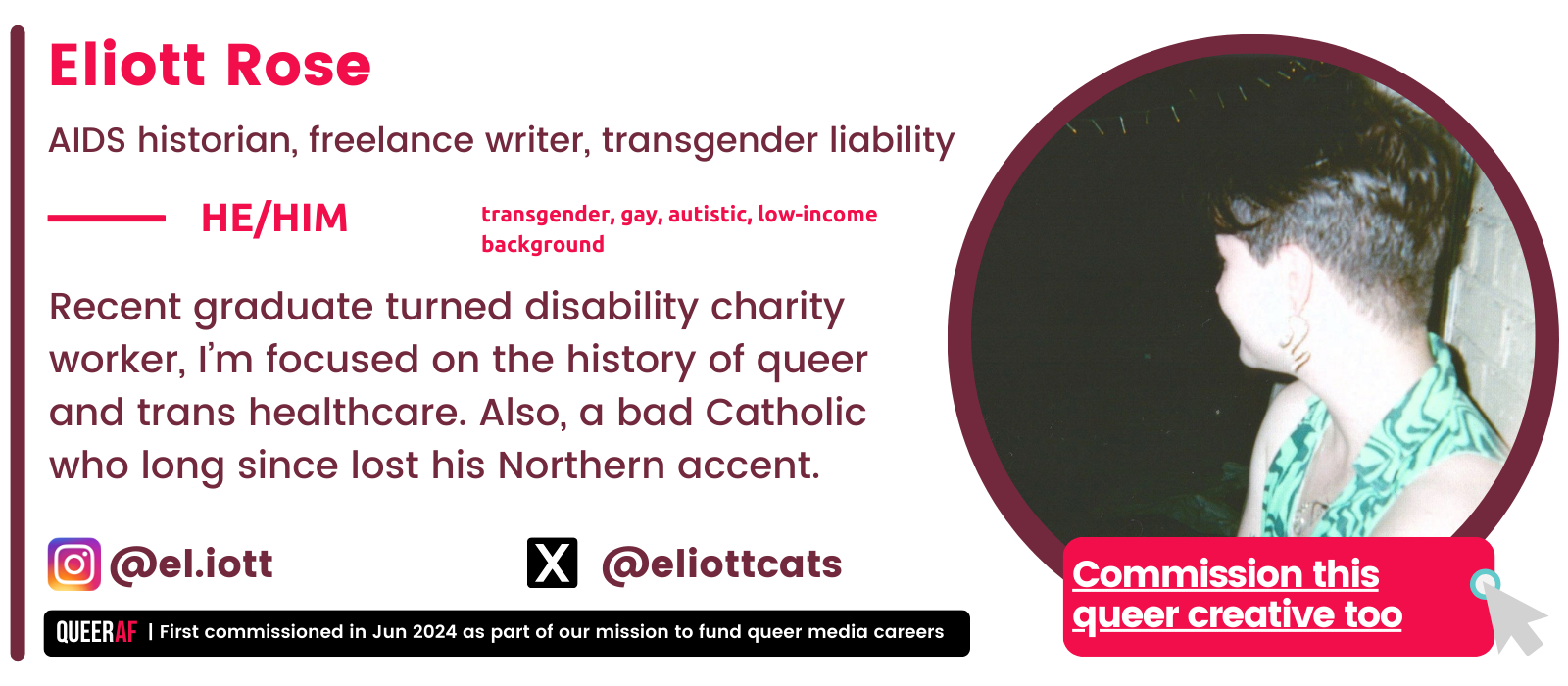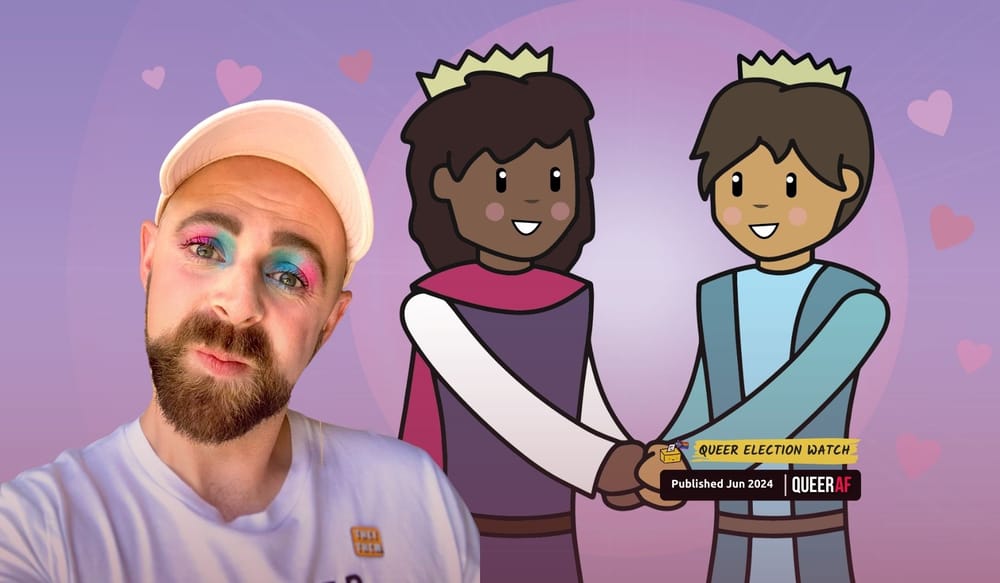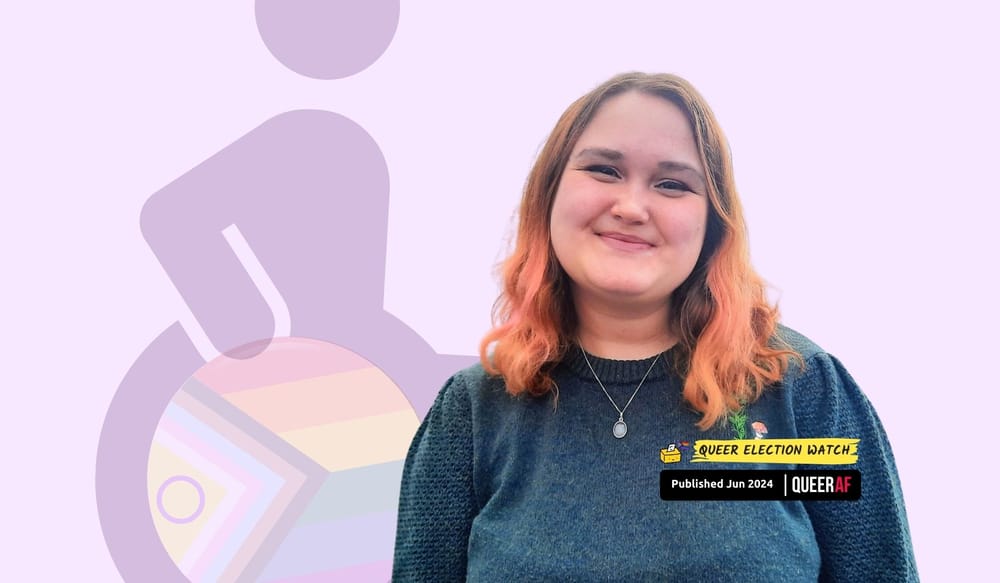
Rishi Sunak’s statement on the Infected Blood Inquiry refers to victims of the scandal as infected with HIV “through no fault of their own” - implying that these victims are innocent and others are guilty. But guilty of what?
As an emerging historian on the history of HIV/AIDS in Britain, I’m carefully looking at how politicians' rhetoric of the infected blood scandal matches to their broader policies on HIV.
And given the wider political focus on LGBTQIA+ identities this messaging, assigning guilt to HIV infection, is something we should resist.
The Infected Blood Scandal has been described as “the worst treatment disaster in the history of the NHS”.
The final Inquiry Report, released this May, focused on the 30,000 NHS patients, mainly haemophiliacs and those requiring surgery, who were infected with HIV and Hepatitis C through contaminated blood products between 1970-1991. Over 3000 of these patients have since died, and the Inquiry revealed horrifying scales of abuse from healthcare professionals.
The HIV/AIDS epidemic has shaped modern LGBTQIA identities, including changing how queer people of all generations think and act about sex. Older generations remember the gravestones on TV, paranoia about shaking hands with AIDS patients, or even yourself or friends becoming infected.
Younger generations perhaps were introduced through shows like It’s A Sin, or through attempting to access PrEP - the first drug that prevents HIV infection.
Sunak’s ‘guilty’ infection comment should not be taken as an innocent slip of the tongue. It implies that sexually transmitted HIV has blame, a cause to feel guilty and deserving of their infection, in comparison to the innocently infected.
This thinking is a major reason why HIV was demonised in the first place.
AIDS was misnamed the ‘gay plague’ amid gay and bisexual men being over 90% of those infected by sexual contact in the 1980s. But the language said more than just gay men are getting this.
The use of plague depicted the community as deserving of their infection for the sin of committing gay sex. AIDS was “a judgement from God'' that ‘homosexuality’ was immoral.
If unchallenged, the re-emergence of the rhetoric of guilty HIV infection could reinforce homophobic stereotypes about HIV. In the current climate of increasing transphobia and homophobia, this is dangerous.
Since 2012/13, hate crimes targeting sexual orientation have risen by 465% - in the same time period, hate crimes targeting gender identity has risen by 1,211%. Speaking about HIV infection in this manner adds fuel to the fire.
The major parties have been vocal about the infected blood scandal in this election. The Labour’s election manifesto used the Infected Blood Inquiry alongside the Grenfell and COVID-19 Inquiries as reasons to enshrine ‘duty of candour’ into all public services.
The Conservative election manifesto made a “wholehearted apology” to victims, the Liberal Democrats promised “full and fair” compensation, and whilst absent from manifestos, the Green Party and Reform UK both criticised how this scandal was covered up.
What has been more absent is those who were infected with HIV through “fault of their own”. All parties support the HIV Action Plan to end all new cases by 2030, but the Green Party are the only ones to have fully addressed how underfunding sexual health clinics have created an accelerating sexual health crisis.
Under the Conservative governments since 2010, sexual health clinics have had a 29% real terms cut.
These cuts led to nationwide increases in cases of gonorrhoea and syphilis; in 2024, gonorrhoea cases are the highest since records began in 1918. Over half of those trying to get PrEP have to wait over 12 weeks, with many acquiring HIV whilst on the waiting list.
Dr Claire Dewsnap, former president of the British Association for Sexual Health and HIV, called the rise in gonorrhoea and syphilis the “canary in the mine”.
In many ways, Mpox was also a canary in this mine: a new sexually transmitted disease affecting gay and bisexual men that the NHS was ill-equipped and unprepared to deal with because of these systemic and prejudiced failings.
This pressure sexual health clinics are under is rarely mentioned by politicians. This implies a political hierarchy of those infected with HIV.
Those who only focus on those tragically infected through tainted blood products but never mention those infected through other means demonstrate that they don’t care about helping all with the disease, just those who are politically convenient.
The fallout from the Infected Blood Inquiry will continue long after the election has ended. So will the rising numbers of sexually transmitted diseases and the effects of intensifying homophobia and transphobia that we have all witnessed over the last few years.
The rhetoric of ‘guilty’ infection and the lack of care given to sexual health services is something to be resisted by the LGBTQIA+ community.
We must continue to push for better healthcare, challenge homophobic assumptions, and call out all those who demonise us for political gain, not just in this election but every day.
Stay tuned to Queer Election Watch for more on the issues that matter to you. Check out the most recent policy check, on conversion practices, on DIVA and QueerAF now.

For media as diverse as we are.
"As someone that didn't go to University I often doubt myself as a capable communicator, especially as the first Director I worked for at the Guardian told me I'd never be eloquent enough if I didn't have a degree.
"But I can categorically say that the half hour editing and feedback chat with Jamie Wareham has built my confidence and given me far more valuable advice. What a profoundly beautiful thing QueerAF are doing within news & media."
That's what Ray Cooper, who also wrote in the Queer Election Watch series said about our approach and support with this week's Queer Gaze article.
That's the power of our work; that's the power of our unique approach to journalism; that's what over 300 QueerAF members help us do.
Are you the next one to help us develop a new generation of LGBTQIA+ journalists who can work in the media, to change the newsroom so together - we can change the country?











